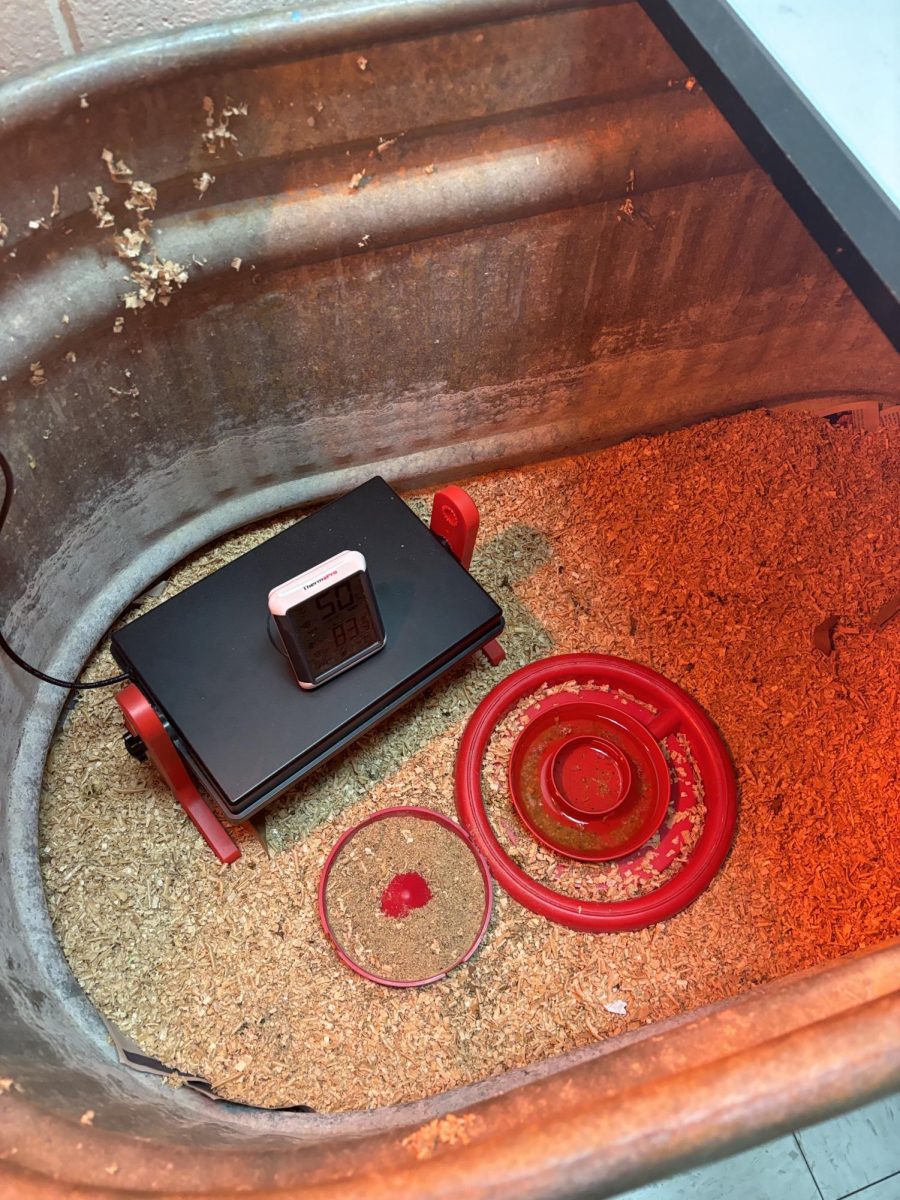The Dar Farm, a club and place essential to our culture, promotes the interest of students looking to grow their knowledge of farming with hands-on learning. They deal with activities like growing produce and taking care of the chickens after school days. These chickens are fostered and taken care of by the Dar Farm’s teacher advisor, Mike Hudson.
“We get fertilized eggs from the coup and we put them in an incubator we have, 21 days later some of them hatch open and we keep the chicks and raise them in my room for the first few weeks,” Hudson said. “Then they are moved to a small pen in the greenhouse, and once they are ready to live in the big coup behind the Old Gym, we transfer them out there.”
Hudson keeps the newly hatched chicks in his classroom, in a pen with a heat lamp. Students can see the chicks, pick them up and hear them chirp while doing classwork.
“I think the students enjoy seeing the chicks grow and it allows me to keep an eye on them and easily feed and water them.”
The cycle of incubating chickens and then later bringing them out to the farm starts with the Eady family.
“The Eadys collect the eggs every night when they go and lock up the coup. In the mornings I let them out, give them scratch feed, and make sure they have fresh water,” Hudson said. “They are able to scratch around and forge for their own food on a nice little plot of land.”
The chickens on the farm have many different uses, not just chirping while students take tests.
“They provide eggs, I feed them scraps from the dining hall or from my own home, and I use the chicken litter to fertilize raised beds that we have.”
The chickens Hudson raises live for about five years on the Dar Farm.
Along with Dar Farm, Hudson teaches classes like on-level biology, AP Biology, and zoology. Senior Emi Grace Wood, who is in his 6th period zoology class, enjoys the presence of the chicks in the classroom.
“I love looking at and playing with the chicks during class,” Wood said. “You can hear them chirp all class sometimes.”

